|
As a recipient of 8 years of Jesuit education, I, like so many others, can testify to the impact that St. Ignatius has had on my life. I have often wondered what makes St. Ignatius so popular. What about his spirituality lead to the largest order of priests in the world? What about his life has drawn students to his education for centuries?
There is an old phrase, “where the rubber meets the road,” that is often used to describe a moment of truth, or a time when something very important happens. St. Ignatius’ magnum opus was The Spiritual Exercises, a text written to guide a reader along a spiritual retreat. In the early 1500s, lay people could not go on retreat. People had to work each day just to survive. Even though there was a spiritual thirst, the general population did not have a way to bring Christ into their lives in a meaningful way. St. Ignatius sought a way to bring Christ into the daily life of all people, not just priests and monks. Because of the Spiritual Exercises, lay people were given a method in which to allow Christ into their daily lives, allowing Him to help shoulder their daily burdens. Now, people could fully experience the truth Christ had to offer. For St. Ignatius, a better way to express the old phrase would be “where the shoulder meets the cross.” In modern times, with so many opinions and an overabundant access to information, many often find it difficult to discover relevance in their lives. In times when the Church is often considered to be “out dated” and “not relevant,” St. Ignatius gives us proof that Christ desires to find us no matter where we are in our lives. St. Ignatius also showed us that in order to be found, we must be disciples. We must answer the invitation Christ offers with His simple words “follow me” (Mark 2:14). The success of the spirituality of St. Ignatius today shows the desire for Christianity that is relevant to one’s own life. St. Ignatius gave everything up and allowed Jesus into his life completely. In so doing, he was able to share his struggles and joys with the Lord. In following the spirituality of St. Ignatius, Christians today can bring Christ into their lives in a meaningful way, and can find Christ “where their shoulders meet the cross.” Suscipe by St. Ignatius Take, Lord, and receive all my liberty, my memory, my understanding and my entire will - all that I have and call my own. You have given it all to me. To you, Lord, I return it. Everything is yours, do with it as you will. Give me only your love and your grace. That is enough for me. Thomas Coast is a theology teacher and Assistant Director of Christian Service Learning at Notre Dame Prep in Scottsdale, Arizona. He is a graduate of the Echo Program at the University of Notre Dame.
0 Comments
A few weeks ago, there was a story making its way around the internet about a priest who was taking Confessions via Snapchat, a popular app that allows users to send pictures and video with captions which disappear after a few seconds. There has been no concrete confirmation that this priest is a Catholic priest in good standing with the Church, but nevertheless it made me think about the concept of receiving Confession in non-traditional ways. At first glance, the idea of Confession via Snapchat seems like an interesting idea - for priests to meet young people where they are and making an often overlooked Sacrament readily available. But this type of Confession diminishes the Sacramental importance of receiving absolution, and also has canonical implications as well.
For a priest to offer Confession via Snapchat makes the Sacrament invalid, as the Code of Canon Law clearly states that “the proper place to hear Sacramental Confessions is a church or oratory” and that “Confessions are not to be heard outside a Confessional without a just cause” (CIC 964 §1, §3). For a valid Sacrament to take place, the priest and penitent must be physically present in the same place. With the advent of technology, the Code ensures that the Sacraments are still celebrated properly, and that we aren’t receiving absolution by email, telephone, text, or Snapchat! Going to Catholic schools my entire life, the seasons of Lent and Advent were popular times for schools to offer Confession. Typically, we would be shepherded to the Church or Chapel during theology class and given the opportunity to go to Confession if we wanted to. However, one time I received a knock on my door and was told that if I went to Confession, I would receive a cupcake. It seems silly now to basically be bribed by a cupcake, but not one to turn down free cupcakes, I happily obliged. Technically, this also is not a licit celebration of the Sacrament. To go to Confession, the Code also tells us that a person must be “properly disposed” which means not coerced by another person (CIC 962 §1). Although these canonical distinctions might seem like trivial technicalities, they ensure that we enter the Sacrament with an open heart, ready to receive the gift of God’s love and forgiveness with no reservations. For a good part of my life, I was uncomfortable going to Confession, but as I’ve gotten older I’ve learned to become less afraid of this Sacrament. One of the best experiences I had with Confession was in college when priests would come to our residence halls to offer the Sacrament. The residence hall lounge had been turned into a casual Confessional and I had a wonderful discussion with the priest who was there. I realized that going to Confession doesn’t have to be a big scary endeavor and the feeling of grace when I received absolution was incredible. This past Sunday we celebrated Palm Sunday, the beginning of Holy Week. At the end of this week we will celebrate the Easter Triduum. Going to receive the Sacrament of Confession is a wonderful way to prepare yourself spiritually for Holy Week. From Palm Sunday, throughout the Triduum, and on Easter Sunday, we journey with Christ as he sacrifices himself for our sins and rises again. Confession prepares our hearts for the joy of Easter morning, allowing us to begin the season of Easter with a “clean slate.” Haven’t been to Confession in a while? Check out our Lenten Resource Page which includes some great resources on the Sacrament of Penance. Rebecca Ruesch is the Blog Editor for the Catholic Apostolate Center This Lent, my 2nd grade class is in charge of encouraging our school to donate to CRS Rice Bowl, a program which helps raise money for those who are less fortunate in 6 places around the world. Our school’s efforts help students raise awareness of hunger and poverty. My class has been determined to give all they can in the past for service projects, but what sets this project apart? That is the question I have asked my students to ponder. One girl told me that her snack after school is Doritos, so for each day she doesn’t snack on this favorite treat, a quarter will be added to her jar for someone “hungrier than me.” Another boy told he scours his house and cars for loose change, and drops it in the Rice Bowl whenever he finds anything, even a penny. He asked me, “Every bit counts, right Ms. Kirby?” Indeed it does.
As Pope Francis reminded us at the beginning of the Lenten Season, our fast must be a fast from indifference toward others. The time has come for us to use these remaining 40 days to contemplate our actions toward others, striving for the utmost respect and care for them. Instead of searching for ways to improve our own lives, maybe it is time that we turned to the poor and vulnerable and improve theirs. Francis writes, “Indifference to our neighbor and to God also represents a real temptation for us Christians. Each year during Lent we need to hear once more the voice of the prophets who cry out and trouble our conscience.” It is not sacrifice to give of our excess or to simply change our diets during Lent, our Holy Father is calling us to fast from our indifference and turn to love. In this New Evangelization, there are tangible and realistic ways for each and every one of us to change hearts. This change must start within our own broken and sinful hearts and through God’s mercy and forgiveness. For each thing we do for our hearts, let’s do something for someone else. Here are some ways you could “fast for indifference”: 1. Do an Examination of Conscience and ask God to forgive your sins through the Sacrament of Reconciliation 2. Go and forgive those who have wronged you 3. Pray for those in your life 4. Intercede for others each day 5. Fast and acknowledge the poor 6. Volunteer in some way, perhaps by serving in a soup kitchen or shelter 7. Add prayer time to your day 8. Write in a journal 9. Attend Mass more frequently As you go about your day during this Lenten season, stop and think about what Jesus has done for your life and what you have done for others. Contemplate all that you have done and remember your responsibility to love others as Christ loved us all. If what we can give only fills a CRS Rice Bowl, or we give up indifference and care deeply for the poor, just know that “every bit counts.” Krissy Kirby is a teacher for the Archdiocese of Washington, D.C. To learn more on the CRS Rice Bowl please check out our Lenten Resources! “Saint Thomas Aquinas, pray for us.” This simple invocation was the conclusion to my family’s Morning Prayer ritual. Every morning, for as long as I can remember, my family would pray together an Our Father, Hail Mary, Glory Be, and the St. Michael’s Prayer. We would conclude with the invocations of Saint Anthony (for a safe trip to school) and Saint Thomas Aquinas (for help with our studies). Today the day before the feast day of Saint Thomas, patron saint of students, and during Catholic Schools Week; I wanted to share my experience of education.
I attended public schools from first grade until I graduated from high school. I was not the only religious student in my grade (or even the only Catholic) but nonetheless I was labeled as the “token Catholic.” This label was at times a point of pride for me and at others a burden I wish I could evade. While it never hindered me from making friends, it still set me apart. I would take up defense of the Church’s often unpopular stance on social issues in class discussions. In some rare cases I even found that my thoughts on certain subjects were brushed off as being my opinion only because of my faith, and any evidence I supplied in support of that stance was ignored. While I received a well-rounded education, the school community was so concerned with being tolerant of all things that it became intolerant of ideas it perceived as being intolerant. After high school, I attended a Catholic college. This was my first real experience of having faith integrated into my formal education. There were numerous differences, but perhaps the most notable was the community. In every classroom, there were Catholic students whose beliefs varied widely, as well as students of other faiths or no faith at all. Regardless of who you were or what you believed, you were expected to support your opinion with reason. It was this environment that fostered a community of intellectual discussion and debate (which rarely turned into conflict). Every idea was heard, which allowed me to hone my own beliefs while also growing in faith. This community was truly welcoming and challenging to all—even when that meant a difference of opinions. Education should be a constant exchange of ideas. This exchange is not always smooth and simple, and that can in fact be a good thing. Saint Thomas’s two greatest works, Summa Theologica and Summa Contra Gentiles, incorporate the work of the Greek philosopher Aristotle (which, at the time that Saint Thomas lived and wrote, was just shy of heresy). He also conversed with philosophers of other faiths, most notably Islam. Despite this pushing of boundaries—or perhaps because of them—Saint Thomas is recognized today as one of the founders of modern philosophy. In his writings he addresses arguments and opposition to his theories head-on regardless of whom they came from. This boldness in spirit is what made him both an incredible student and teacher. It is also why, over eight hundred years later students—myself certainly included—ask for his intercession with their studies. As Catholics, it is our duty to build up communities where we can encounter both those who share our faith and those who do not. We can see this lived out in the challenging and formative words of our Holy Father. May we always seek to be students and teachers of the faith. Saint Thomas Aquinas, pray for us. Patrick Burke is a staff member at The Catholic University of America in Washington, D.C. As I finally sit down to write this post, I once again have that awful realization that I’ve let my tendency to procrastinate get the best of me. And, once again, I beat myself up over it because I know I’ve failed to follow through and honor my word: “You have a college degree! You should know how to properly manage your time! You’re better than this! Stop being such a failure!” and on, and on. It’s a cycle of self-deprecation that so many of us fall into, particularly young adults.
When I did some investigation on St. Jerome, whose feast is today, I laughed at myself over that train of thought. Most well-known as the biblical scholar who revised the Latin Bible (generally known as the Vulgate), this Doctor of the Church was also incredibly hard on himself when he failed. Butler’s Lives of the Saints says of Jerome: He was, as someone has said, no admirer of moderation whether in virtue or against evil. He was swift to anger, but also swift to feel remorse, even more severe on his own shortcomings than on those of others. A pope is said to have remarked, on seeing a picture of Jerome striking his breast with a stone, "You do well to carry that stone, for without it the Church would never have canonized you." I suppose we young adults are in good company when we, too, are hard on ourselves for missing the mark. It’s really no wonder Catholic young adults have such difficulty accepting those times we fall flat on our faces. Fresh out of our academic careers, whether high school or college, we’re used to very high expectations on our performance. We tend to gauge our self-worth on quantifiable “goals”: our GPAs, extracurricular involvement, “likes” on Facebook, retweets on Twitter, number of job interviews, etc. Every time we miss the mark we’ve set for ourselves, it somehow translates to utter personal failure. This, of course, is foolishness. It’s all well and good to be involved and occupy our time with things. St. Jerome himself said, “Be ever engaged, so that whenever the devil calls he may find you occupied.” It’s another thing, though, to obsess over being occupied and, thus, increasing our chances at “being successful”. We know it in our heads, but fail to grasp it in our hearts, often at great detriment to our interior lives. All of these “real world” struggles have a profound effect on our spiritual well-being. As soon as we begin to think poorly of ourselves for underperforming in worldly things, we become overly critical of our spiritual shortcomings. We keep failing at (insert your habitual sin(s) of choice) and beat ourselves up every time. This can be even worse for the soul than the particular sin itself; we begin to believe that we’re not worthy of being fixed. So what is one to do? I’m no spiritual guru, but I can share a few things that continue to help me overcome this recurring sense of unworthiness. 1. Daily Prayer- It goes without saying that daily prayer is essential. Even if you start with “Hey God, it’s me again. I’m sorry I keep failing at this. Please help”, you’ll reap the benefits immediately. Like with any other relationship, frequent dialogue is of primary importance. 2. Mass- The Eucharist is literally the greatest physical thing in the world: Christ in the flesh. We have the opportunity to receive Him every single day; take advantage of it. And while you’re at it, take a leap of faith and try out… 3. Reconciliation- Yes, the oft-dreaded Confessional. Admittedly, I absolutely hate going—but I sure love leaving! While it’s hard to do, it’s like anything else in life: the greatest reward comes from the greatest sacrifice. Take a leap of faith if you’ve been away for a while. The “spiritual car wash” really is one of the greatest gifts God offers us. 4. Spiritual Direction- Regular dialogue with a spiritual guide provides an objective view of our journey. It takes a level of openness and vulnerability, but having someone to walk with gives us much-needed encouragement and accountability. 5. Patience- St. Francis de Sales said it best: “Have patience with all things; but, first of all, with yourself.” We’re humans, and fairly young ones at that. The expectation we place on ourselves to be perfect is so unreachable because we’re inherently imperfect. We’re constantly developing, growing, falling down and getting back up again. It’s only God who can make us perfect; we just keep getting in His way. The next time you go all St. Jerome on yourself, drop that stone and look instead to the One who is Perfection itself. He’ll help you back up on your feet every time. Ad Infinitam Dei Gloriam Jay Schaefer is the Webinar Associate for the Catholic Apostolate Center and a civil engineer in the Baltimore Area. 9/25/2014 Discernment Story: How one volunteer came to hear her life calling through serviceRead NowI believe that my two years of service had a 100% direct impact on my discernment process and decision to enter the Daughters of Mary Help of Christians, more commonly known as the Salesian Sisters of St. John Bosco or just the Salesian Sisters. In fact, I would go so far as to say that God sent me to volunteer at this particular High School to reveal my vocation.
I wanted to do a year of volunteer service right out of high school, but did not have the opportunity to do so. I learned that I found great joy in serving others through my social outreach group in high school and had a strong desire to give more time, energy, and direct focus to volunteering. Come April of my senior year in college, I found myself without a plan for the following year and the idea of doing a year of service re-entered my mind. I visited theCatholic Volunteer Network website and found the online RESPONSE directory,which helped me to narrow down my search to the type of program I was interested in with the type of support that I needed. This is where I learned about the Cristo Rey Network of schools and truly the next chapter of my life began. The Cristo Rey Network is a high school model that offers low income families the opportunity to send their students to Catholic college prep high schools. How is this possible when most Catholic high schools are quite expensive, you might ask. The school partners with local corporate businesses, organizations, universities, hospitals, law firms etc where the students will work five days out of the month to offset their tuition cost. (Click here to learn more and see me in my classroom at minute 4:37.) It took a leap of faith to go to Don Bosco Cristo Rey High School (DBCR) in Washington, D.C. because I would be joining the Salesian Domestic Volunteers (now called Salesian Home Missioners) in their first year as a volunteer program and I would also be the only volunteer placed at DBCR. I was going to be a pioneer both in my volunteer program and placement in the school. DBCR was also only in its fourth year of existence and still responding to the challenges of being in the “start up” period. It would be two years of learning and growing for all of us. During my first year of service at Don Bosco Cristo Rey High School I worked in the Youth Ministry and Faith Formation Department while also teaching two sections of junior theology. In my second year I taught a full course load, five sections, split between freshmen and junior theology as well as assisting the youth ministry team. Within those classrooms and the small youth ministry office God called me to be a Salesian Sister. I learned a lot from working side by side with Fr. Abraham Feliciano, SDB (Salesians of Don Bosco). In him, I witnessed the everyday charism of the Salesians and joyful service to the young who are most in need. Fr. Abe loved those students with his whole heart and they knew it. They knew that they could rely on him to crack a joke and brighten their day or that they could come to him with serious problems and he would lead them to Jesus. I learned that the heart of the Salesian charism is a daily encounter with Christ in and through our students and hopefully reciprocated as we open ourselves to be an image of Christ for them. I spent countless afternoons in that youth ministry office, surrounded by young people, laughing so hard I thought I would burst! I also learned how to be with them in and through the struggles they encountered in their daily lives. (Click here to see the class of 2014 reading excepts from MLK Jr.’s “Letter from Birmingham Jail”. These are some of the many students who have overcome great challenges in their live and that I had the privilege to see Christ in everyday. ) While working with these students, I lived in community with volunteers from several different programs. We were a mixed bag of Franciscans, Salesians (that’s me!), Columbans, and volunteers from the Catholic Volunteer Network. Over the course of my two years there we ranged from a community as small as four to as large as nine. The Franciscan style of living in community is simplicity. On an economic level, we made do with all second hand furniture and shopped frugally for our needs. We usually did not buy Ziploc bags, for instance, because we could reuse Tupperware containers instead. As a part of my volunteer program, I did not have a car but I received a stipend each month for food and transportation. On the community level, simplicity meant that we relied on each other. Sometimes that took the form of practical matters, such as grocery shopping or mopping up a flood in the basement. Other times it took a more personal form as we relied on one another for support and friendship. Now that I am living in community with the Salesian Sisters, I look back on my time in community as a formative period. In learning how to live with different people of various personalities, I learned how to recognize the gifts that all members can bring to community and I was able to learn more about myself as well. As my two years of volunteering came to a close, I decided to stay and accepted a full time paid teaching position at DBCR. But I had an inclination, even then, that God was calling me to something more, something deeper. God had gifted me with two wonderful and difficult years at the service of a school and students truly in need. But His ultimate goal was not for me to stay at one school and with one group of students, He wanted to expand my horizons of service and the dimensions of my heart. I had the opportunity, while Fr. Abe was at DBCR, to attend daily Mass in our school chapel. This daily encounter with Christ in the Eucharist helped me to see Christ every day in the young people and opened my heart for the possibility of deeper relationship with Him. When the Salesian Sisters came for our vocations assembly I heard God’s voice speaking directly to me saying, “This is it!” I must be honest, my first reaction was irritation. “Oh very funny God! Here I am sitting through the same vocation talk presented to all five of my Theology classes. Aren’t you supposed to be speaking to the students right now?! Leave me alone!” But because our God is good and patient, He didn’t leave me alone. After three years in Washington, D.C., He called me to move to New Jersey where the formation house of the Salesian Sisters is located. It took some convincing on God’s part to show me that it was not just DBCR where He wanted me to serve, but anywhere the Salesians are and with all young people tho whom He might send to me. The Salesian Sisters dedicate their whole selves to God in the service of young people through education, parish catechism, youth centers, and anywhere young people may be found. St. John Bosco and St. Mary Mazzarello (our founders) shared the joy of Christ with every young person they met providing for them a home to feel welcome, a school to prepare them for life, a Church to evangelize, and a playground for them to make friends and have fun! For me, what started as just a year of service post college opened the doors of my heart for Christ to call me to my life’s vocation. I am now half way through my first year of formation and if I had to identify one overriding emotion, it would be deep a sense of peace. For more information on vocations, be sure to check out the Catholic Apostolate Center's Vocational Discernment Resources Kelly Schuster is a former Salesian Home Missioner and is currently an Aspirant with the Salesian Sisters This post was originally written and posted on the Catholic Volunteer Network Blog. For more Catholic Volunteer Blog Posts please visit the CVN Blog Page. The Catholic Apostolate Center is proud to partner with the Catholic Volunteer Network by developing faith formation resources for volunteers and alumni, assisting in its efforts to provide and advocate for faith-based volunteerism and collaborate in many additional ways. In my kindergarten class, there is one little girl who loves to ask questions about faith. After going to Mass in the chapel last week, she asked me, “Who was the almost naked man on the wall in pain?” I smiled and answered, “Jesus, because he loves you very much.” While contemplating this, a few minutes went by until she had another question. She asked, “Why do they give cookies at church and why didn’t I get one?” These and many other inquiries were made that day, so it struck me: how can we as faithful Catholic adults help young children better understand our traditions, history, and faith? We must understand as children do.
In the Gospel of Matthew, Jesus said, “Let the children come to me, and do not prevent them; for the kingdom of heaven belongs to such as these” (Matthew 19:14). Only with the virtue and openness of a child can one truly have eternal life. Similar to my student who was so curious about the Mass, we as adults of faith must remember to love as children love, and to eagerly ask questions as children ask them. Having a burning desire to love and serve God is something that so many adults yearn for, but so few are able to achieve. Often times, children can be an example to adults of unconditional and innocent love for others. Understanding our faith is difficult at times, and it is often hard to see the good in difficult situations. We get caught up in the stressful details and hardships that come with living our daily lives, and frequently become over-scheduled and sluggish in the practice of our faith. As “grown-ups” we have so many things on our minds, and deepening our understanding of God’s love and mercy is easily forgotten and overlooked. Instead of grumbling about an overdue bill or the laundry list of things to do, stop and think about how lucky we are to have a job or a family that loves us. Children love their parents and caretakers for simple things like good food, a comfortable bed, and new clothes. While we are forgetting that the simplest actions mean the most to children, we also forget that the simplest moments mean the most to God. A quick prayer of gratitude in the morning, for a traffic-less commute or a child’s hug goodbye goes a long way…God notices every grateful moment. Our Holy Father, Pope Francis, believes that education and teaching provides knowledge of beauty, truth, and goodness. Inspiring others with a desire to learn about our faith is crucial in the life of a Catholic–whether you are a teacher, parent, or role model. Children are innocent and believe what they see. When they see parents and teachers serving God and the Church, they desire to imitate them and do the same. We must be like children in order for them to understand the Lord, ask questions, make mistakes, get messy…and always know that God loves us. Krissy Kirby is a Kindergarten teacher for the Archdiocese of Washington D.C. “The work of teaching is one of the most important in the Church.”
~St. John Baptist De La Salle Today, we often take for granted Catholic schools. Most likely either you or someone you know attended a Catholic school. A Catholic education is often seen as top quality, and Catholic schools are considered some of our finest places of learning. The modern concept of education dates back to the late 17th century France and one individual in particular: St. Jean-Baptiste de La Salle, founder of the Brothers of the Christian Schools. His work was not only revolutionary in method, but also unique in terms of educating the poor and underprivileged. Some 300 years later, de La Salle’s vision of educating those most in need remains strong in the United States through the Miguel model school. The Miguel school system was established in 1993 with the sole purpose of educating under-served children, focusing on students in middle school. The system was named after St. Miguel Cordero, a Christian Brother who dedicated his life to the education of poor Ecuadorians. Recent news about families and children fleeing their homes in Central and South American to find better educational and economic opportunities demonstrates that the need for quality education is as great today as in the time of St. Miguel. Here in Washington D.C., a Miguel school was established in 2002 as an extension of St. John’s College High School with 8 students – San Miguel School of Washington. It rapidly grew, and this past year the school graduated its largest class of 23 students and currently has a total of sixty-three Latino boys in grades six to eight. All San Miguel students come into sixth-grade from DC public schools and, on average, have reading and math skills of a fourth-grader. By the end of their time at San Miguel as eighth graders, they are 100% proficient in these subjects. [1] This success results from their own hard work and that of experienced teachers and tutors. Additionally, San Miguel, like most Miguel-style schools, operates on an extended day and year-round school program (200 school days vs. a traditional 160 days). This hard work pays off - 98% of San Miguel graduates have either completed their high school diploma or are in the process of doing so. The graduation rate for Latino males in DC public schools is 46% [2]. Clearly, San Miguel and its unique style of education is paying off. In addition to my role at the Catholic Apostolate Center, I work as an intern in the Development Office at San Miguel School. It has been an exciting time and a true blessing to work to make sure that San Miguel students receive the education they deserve. It has helped me to grow in trust for the good work that the Church does as a whole. We as Catholics have the obligation to serve others, as apostles of Christ. We have the responsibility to do our part in the greater effort of Christ’s mission. San Miguel School truly changes the lives of its students. By serving these at risk Latino boys, I know that I am changing the world and trying to do my part. Patrick Fricchione is the Research and Production Associate for the Catholic Apostolate Center and an intern in the Development Office of San Miguel School. [1] San Miguel School DC, website, sanmigueldc.org. [2] Statistic from the National Center of Education Statistics. We celebrate Pentecost on June 8th, 50 days after Easter, to commemorate the Holy Spirit’s descent on Christ’s disciples after His Ascension. We are, in many ways, celebrating the birthday [E1] of the Church and our individual commitments to God.
The Holy Spirit empowers us to share our faith, to have the ability to open our hearts in understanding one another and God’s message. Through the gifts of the Holy Spirit (wisdom, understanding, counsel, knowledge, fortitude, piety and fear of the Lord), we become fully alive in our personal relationship with God so we can give better witness to His message. The Catechism of the Catholic Church says, “…the Church is sent to announce, bear witness, make present, and spread the mystery of the communion of the Holy Trinity” (CCC 738). We can use Pentecost as an opportunity to make our faith our own while sharing God’s word. By utilizing our individual talents and volunteering in some aspect of our church, we strengthen our faith and build community. I remember wanting to be an altar server after receiving my first Holy Communion in second grade. I began altar serving and continued to do so until I received Confirmation. Serving during the Mass allowed me, as a young girl, to better understand my Catholic faith. My parents remember me saying how I enjoyed altar serving because I had to pay attention (and stay awake) during 8 a.m. Sunday Mass. Assisting the priest on the altar, I began to fully understand and celebrate the Liturgy of the Word and Liturgy of the Eucharist every Sunday. I attended Catholic school and was able to make connections between Religion class and weekly Mass by serving during church service. Once confirmed, I continued to volunteer in my church as a lector as well as taught religion education to grade school children. Actively participating in my church allowed me to fully engage in my Catholic faith and grow spiritually. No matter our age, the Catholic Church encourages us to be active participants in Mass and in our Church. Through the work of the Holy Spirit, we can come to discover where the Church needs us and how we can best share the time, talent, and treasure God has given us. My parish hosts a ministry fair each year, which gives parishioners an opportunity to see other ministries within the Church and where we can best serve God and our community. Pentecost allows us to renew ourselves to the Holy Spirit. Pope Francis asks us in his daily Mass homily on May 19th this year to question ourselves: “What kind of heart do we have? … Is my heart fixed upon everyday gods or is it a heart fixed on the Holy Spirit?” It is easy for us to get wrapped up in life’s habitual tasks at home, work, with family, colleagues, etc. Pope Francis encourages us that the Holy Spirit “gives us strength, gives us the steadiness to be able to move forward in life in the midst of many events.” Dana Edwards is a recent graduate of the University of Florida. She currently resides in Tallahassee, Florida where she volunteers as a lector and with communication outreach at her local parish, Good Shepherd Catholic Church. “Fall in Love, stay in love,
and it will decide everything.” (attributed to Fr. Pedro Arrupe, SJ) In college, discernment was easy. “Discernment” meant prayer and discussing possible vocations with friends and spiritual guides. The experiences cemented friendships and built spiritual foundations that will hold me throughout life. However, I found that discernment is truly practiced when we make a decision and carry it out. At the end of my undergraduate career, the time came to make important decisions about what to do after graduation. At the moment of making a big decision, I looked back at the small decisions made in the past few years. How did I choose groups of friends, extracurricular activities, or even classes? To my mind came the prayer quoted at the beginning of the post. To quote it in full: “Nothing is more practical than finding God, than falling in Love in a quite absolute, final way. What you are in love with, what seizes your imagination, will affect everything. It will decide what will get you out of bed in the morning, what you do with your evenings, how you spend your weekends, what you read, whom you know, what breaks your heart, and what amazes you with joy and gratitude. Fall in Love, stay in love, and it will decide everything.” This time, my discernment led me to conclude three things with which I have come to love in a quite absolute, final way: God, service, and math. My schedule consistently prioritized these three, and throughout my senior year, I saw that God opened doors for me. I had options, but this also meant I had to make a decision. Through the Alliance for Catholic Education (ACE) program at the University of Notre Dame, I made my way to sunny Jacksonville, Florida where I am teaching high school mathematics. Denial in discernment was comfortable because it allows us to remove the panging doubts that come with making decisions: How will I know if I made the right one? One message that is clear from the Gospels is that God is always with us, and He will let us know when we are on the right track. Jesus says, “It was not you who chose me, but I who chose you and appointed you to go and bear fruit that will remain,” (Jn 15:12). My first confirmation that God chose ACE for me was the moment I found out I was accepted. As I read through the email, joy and excitement came bursting out in a series of shouts, hollers, and jumps. Looking back, that extreme emotion did not have its source in me or an email but solely in God. Other signs came, but from that moment of acceptance I had confirmation that I was putting my feet on the correct path. Now, with a year of teaching under my belt, I can list the further confirmations that this is God’s plan for me. As I read through the prayer above, I think of how teaching mathematics in a Catholic school has seized my life. I get out of bed to meet with the student who needs to review before a test, and I choose to spend many evenings and weekends excitedly planning my lessons or meeting the grim realities in grading. My free time is consumed by reading over teaching blogs or swapping lesson plans with colleagues. Now what breaks my heart is the student who has barely passed his previous math courses and continues to flounder in mine despite his best efforts. Now I am amazed in gratitude when a student is able to lead the class in prayer. Though I still have a year of teaching left with ACE, I know the time for more decisions will be here soon. This realization has led me to more fully understand another essential nature of discernment: it never ends. Fortunately, we can take part in continual discernment because we have a God who continually acts. What is He making me notice today? What seized my attention this week? Where have I felt moments of great joy this year? “Fall in Love, stay in Love, and it will decide everything.” Tim McEvoy is a teacher through the Alliance for Catholic Education in Jacksonville, FL. "Not all of us can do great things. But we can do small things with great love." -Blessed Mother Theresa  Growing up attending Catholic schools my entire life, the life and teachings of Mother Theresa were always something that I was familiar with. There is something about an Albanian woman who gives up her life to serve the poor and dying in the slums of Calcutta that makes people stop and evaluate their own lives. It’s incredible to imagine one person completely uprooting their own life and going to try to combat the extremes of poverty in India. Mother Theresa embraced Catholic Social Teaching on the dignity of the human person and went above and beyond in her ministry. In theory, we would all like to have as much of an impact as Mother Theresa. However, the average person today recognizes his or her own inability to make such an extreme lifestyle change. We are comfortable in our lives today and uprooting them like Mother Theresa did is something we are not prepared to do. Making a huge impact, while desirable, is not usually possible for most of us. Even Mother Theresa recognized that her decisions were extreme, and not something most people are prepared to do. She knew that not everyone could do what she did with her life. Her words remind us that even if we can't make such an extreme life-change, we can still impact the world on a smaller, but still meaningful, scale. In this last week, these words have taken on a deeper meaning for me. Having just finished over a week of training to be a Resident Assistant at my university. I am exhausted and excited, but mostly, inspired. One of the main points that our supervisors made during our training is that we as RA's have a tremendous impact in the smallest ways possible. Mother Theresa's words are a good reminder to me that being a presence with my residents is the most important thing I can do. Sometimes, all a student needs is someone to listen to them, no matter how insignificant their problems may seem. College students can make poor decisions, and the role of an RA is often to discipline those decisions and enforce rules that many of these students disagree with. We are seen as students with nothing better to do than get our residents in trouble. The reality is, I enforce the rules and document my residents because I care about them. I recognize that very often it will feel like a thankless task, my residents will blame me initially when their decisions result in disciplinary sanctions. But I hope that even when I do have to have these harder conversations and confrontations, they will eventually come to realize that I do my job out of love for them. In our daily lives, we often forget how even the smallest gestures can make the most meaningful impacts. If we live our lives as Mother Theresa suggests, doing the small things with great love, our lives might have even more of an impact than we realize. In the gospel this past weekend, we heard the “greatest commandments” from Christ himself: “You shall love the Lord, your God, with all your heart, with all your soul, and with all your mind… and you shall love your neighbor as yourself.” (Matthew 22:37,39). Love can take many forms, and the smallest gestures can be the biggest examples of love. Rebecca Ruesch is Blog Editor at the Catholic Apostolate Center.
 I’m convinced that God has added to the hosts of angels a new rank: Facebook-aphim. Facebook seems to be the messenger of all things surprising in our time. From births to shocking engagement announcements, I learn most things I know through Facebook. A few days ago, I learned that a wonderful woman who I once worked with died after a very long battle with cancer. She was the receptionist in the front office of the Catholic high school where I was employed after I graduated from college. She was usually the first person who greeted me when I entered the building each morning. Her chipper, “Good morning, David!” was as unrepeatable as she. To say that she was a character and full of life would be an understatement. I look forward to her greeting the next time we meet face-to-face. While the school in which she and I worked was founded to educate young people, I often found that I was the one being educated. The school was run by the Oblates of St Francis de Sales, and it was there that I met Francis de Sales in the men and women who live his charism of incarnational love, gentleness, and authenticity. They invited me into their lives of faith, which, at that point, fit none of the conventional rules of faith I was used to. In fact, the things they taught me about the Christian life didn’t have any rules to play by at all. They taught me about what a very human life of faith was all about. They invited me on their journey of life, a very Salesian thing to do. My former coworkers, and those who follow Francis’ way of life, embrace the humanity of our existence (read: the messiness, uncertainty, and hurt) that God came to redeem. They live authentic lives, in all their brokenness, because they live with an awareness of God in the present moment. My coworkers were aware of God’s presence as they dealt with the death of their spouses or parents or our coworkers, students, and friends. They were aware of God’s presence during their divorces or terminal illnesses or their children’s poor decision making, failure in school or struggles with drugs. They were aware of God’s presence when they celebrated their children’s weddings, the birth of their grandchildren, and when that student who had struggled for four years graduated. And when I came to them in my times of need, unsure of God’s presence in my life, they somehow knew enough to speak to me in love, and they made themselves understandable because hearts speak to hearts, lips speak only to ears. It was then that I understood what God’s listening might be like. In sharing their lives with me, both the successes and failures, they illustrated that the call to discipleship is the call to be who you are and be that perfectly well. For us, we were teachers and staff and administrators, but we were also mothers and fathers, sons and daughters, friends and mentors. Francis reminded us that our vocation was only to be the best of what and where we found ourselves. To be the best child or the best educator was our call. They showed me that the best way to live the Christian life was not necessarily as a monk or religious, but as a person who lived the life that God called him to in the present moment, as well and with as much love as he could. To be who you are and be that perfectly well is much harder than it seems, but attempted in full humility brings the liberation that we enjoy as beloved children of God. How often do we claim that authentic identity and make it our own? I am forever grateful for having learned of Francis de Sales and his charism of Gospel living. I am indebted to the men and women, those who I now count as friends and those who I wait to see again in eternal life, who showed me how to Live Jesus. I am confident that the friendships taken up in this world will be taken up again, never to be broken off. In the Christian life, we are together on a journey to heaven. But it takes a lifetime of patience, generosity, and authenticity with and for each other to get it right. David Pennington is the Associate Campus Minister for Liturgy and Worship at The Catholic University of America.
“I believe in dinosaurs!” tenaciously proclaimed the small third grade boy sitting in the front row. It seemed as though my conviction of teaching belief and our creed back-fired on me. My optimistic side gave me some consolation: “at least he believes in something.” And the third grader in me wanted to scream with him, “I love dinosaurs!” Throughout the next year I will be embarking on the adventure of teaching the Catholic faith to a bunch of third grade boys and girls. But the question that prompted the response of dinosaurs, “What do you believe?”, is not a question that ends with the completion of third grade religious education. It’s a question to be asked daily, to be wrestled with daily, and most importantly, to be lived daily.
Today, October 11th 2012, The Church begins her celebration of the Year of Faith. This is a faith that begins at baptism and brings us into the Triune God who is Love. In this faith we profess “the Father, who in the fullness of time sent his only Son for our salvation; Jesus Christ, who in the mystery of his death and resurrection redeemed the world; the Holy Spirit, who leads the Church across the centuries as we await the Lord’s glorious return" (Porta Fidei). The Holy Father is calling for us to CELEBRATE this faith! He is asking us to “rediscover the journey of faith so as to shed ever clearer light on the JOY and renewed enthusiasm of the encounter with Christ.” In short, he is asking us “what do you believe?” and “how do you live it?” Today, we also begin the renewal of our blog. As we, the Catholic Apostolate Center, celebrate this Year of Faith, we wish to share stories of lived belief through examples of discipleship and evangelization. We endeavor to be a place dedicated to reviving faith, rekindling charity, and forming apostles. It is a place to face the question “What do you believe?” Hopefully in our searching and questioning together we will be able to come up with an answer that goes beyond dinosaurs. Journey with us! Listen to our stories and share your own! Ask questions, post comments, share wisdom and resources. By virtue of our baptism, we are called to live our faith through the Christian charity. Journeying alongside one another, may we meaningfully celebrate this Year of Faith in order to shed light on the joy of our Catholic identity! Today I leave you with the question, “What do you believe?” Maybe it’s love, maybe it’s Christ, maybe it’s dinosaurs! St. Paul tells us to “examine everything carefully; hold fast to that which is good” (1 Thess 5:21). May our belief lead us to a deeper love of God, the Supreme Good! During this Year of Faith, may the love of Christ, rooted in belief, urge us on! (cf. 2 Cor 5:14) Pamela Tremblay is the Blog Editor for the Catholic Apostolate Center. |
Details
Archives
April 2024
Categories
All
|
About |
Media |
© COPYRIGHT 2024 | ALL RIGHTS RESERVED

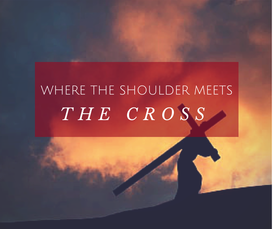
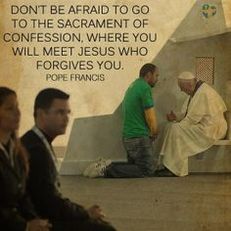
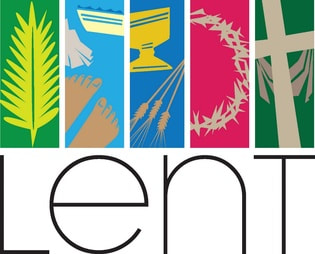


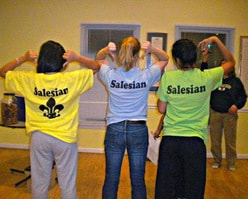
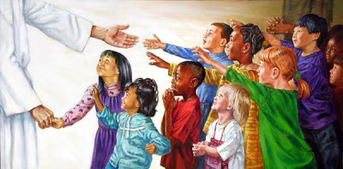
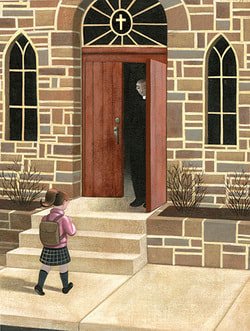


 RSS Feed
RSS Feed